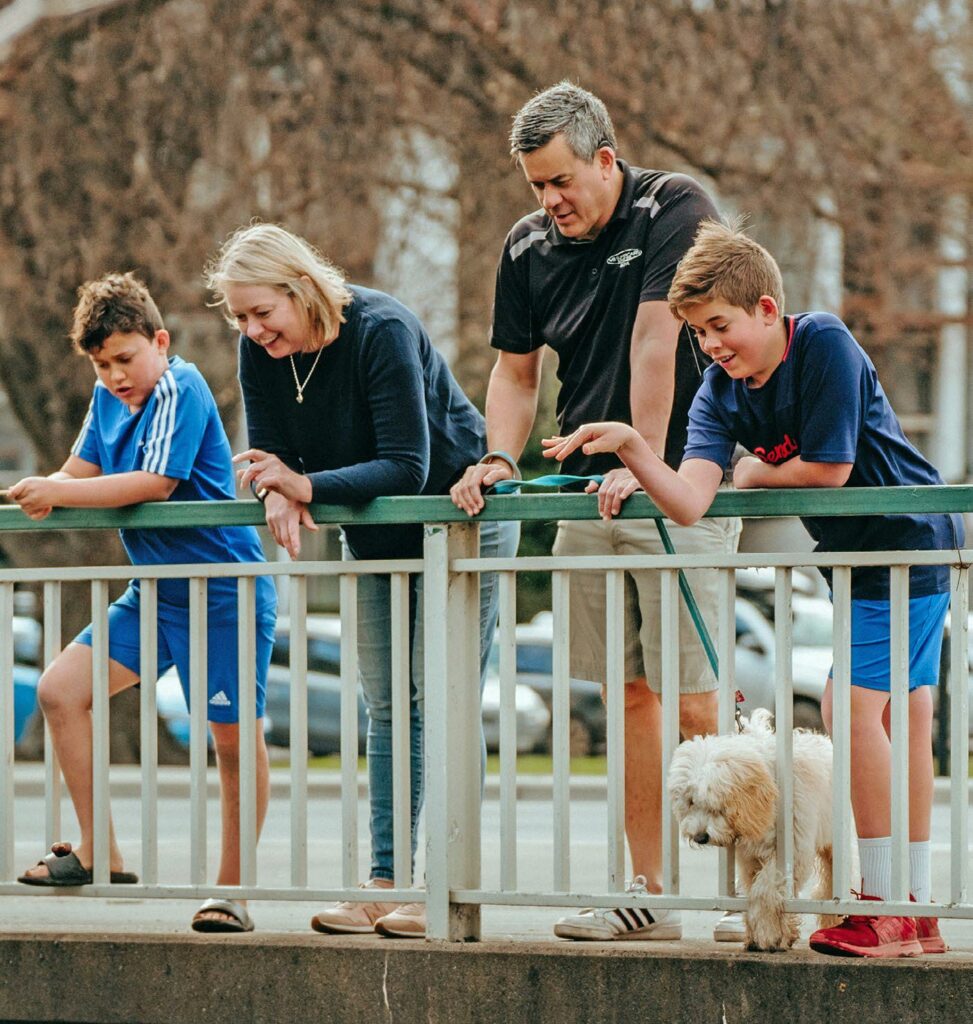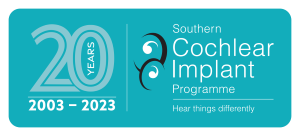The biggest joy that a cochlear implant has brought for Andrew King is the ability to multi-task in conversations with his family. The Christchurch landscape architect has one cochlear implant in his left ear and he relies on a hearing aid in his right ear.
Before his implant, Andrew had severe hearing loss and was well below normal hearing even with his hearing aids. Without the hearing aids, he was completely deaf. Andrew did have hearing when he was a young child. He believes that when he was one or two years old a childhood illness caused his hearing to disappear. He recalls very well the first sounds he heard after his cochlear implant was turned on in Christchurch five years ago in June 2017. When he walked out of St George’s Hospital, the nearby Merivale Mall was the first place he visited with his wife, Megan.

The King Family
“I remember I heard a high-pitched squeaking sound, which I realised was the shopping trolleys being rolled past us. When I asked my wife she hadn’t even noticed it at the time, and I don’t notice it now.”
Then they went to a café. “I remember sitting there and hearing the clanging plates and glasses and I couldn’t imagine why people thought sitting in a café listening to that was something pleasant to do! My brain couldn’t process what the noise was.”
Listening to music had initially been “just awful”. “It took up to three months before music started to sound like music is supposed to sound and be enjoyed,” he says. His cochlear implant has made it easy to hear and respond to his two sons, now aged 10 and 12. Although, he laughs that they would probably say he still doesn’t listen!
Andrew is a landscape architect for a consultancy called WSP. He grew up in Christchurch and left home for Wellington for his first job. He’s since worked all around the world – living for three years each in Singapore, Melbourne, Dubai and Shanghai – before returning to Christchurch to raise his sons.
Although he was told years ago that he would be a good candidate for a cochlear implant, and in Australia and the United Arab Emirates he qualified for free surgery, he chose not to look into it. Instead, he was content to rely on his hearing aids and his conviction that hearing aid technology would continue to improve. It was only when he came back to New Zealand that he properly investigated cochlear implant surgery and understood the hearing improvement he could benefit from.
Andrew is grateful to be the recipient of the Southern Hearing Charitable Trust grant in 2017. (Each year the Trust grants the cost of a private implant to one recipient.)
Andrew now rues the fact that he didn’t pursue an implant earlier in his life.
He advises anyone who is sitting on the fence about the surgery to go for it, even if the cost of self-funding the operation is a challenging issue. “You’ll never look back,” he says. Andrew advises candidates to talk to an expert in the cochlear implant field, such as an audiologist who is an experienced referrer or a SCIP staff member. In the workforce, his cochlear implant has made the modern practices and technology of today’s office routines easier.
He used to rely more on emails than calling people, but now he doesn’t hesitate to pick up the phone and Zoom meetings are simple even when there are multiple attendees.
This has been particularly helpful since the onset of the COVID-19 pandemic and the switch to more working from home and online collaboration.
Andrew is very complimentary about SCIP staff, describing them as the guardians of cochlear implant recipients who take their role very seriously and are awesome to work with.
